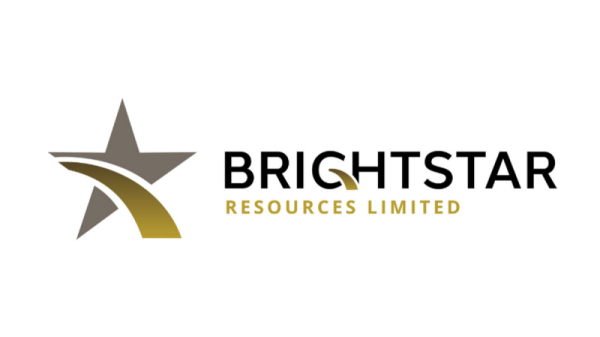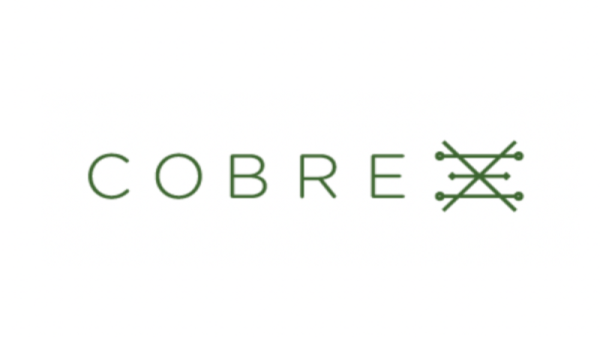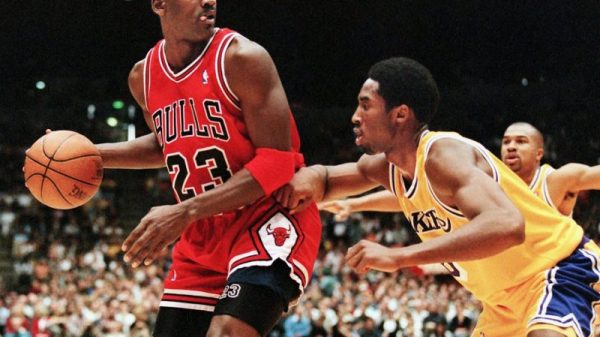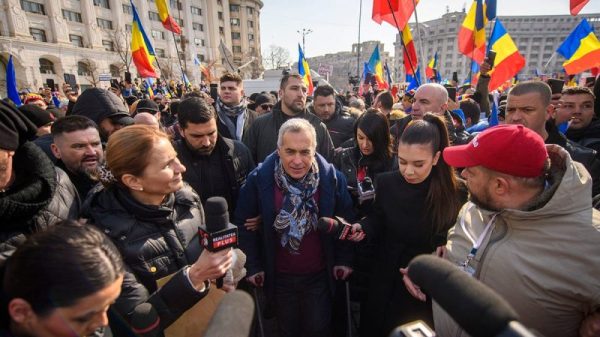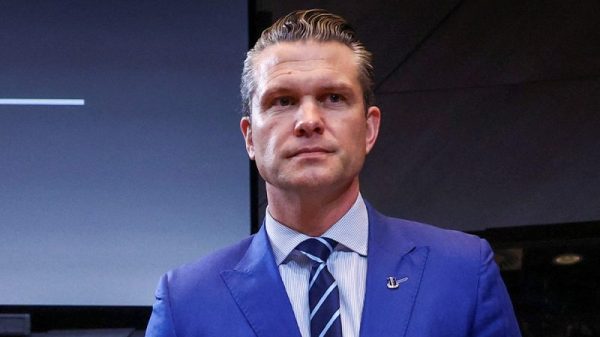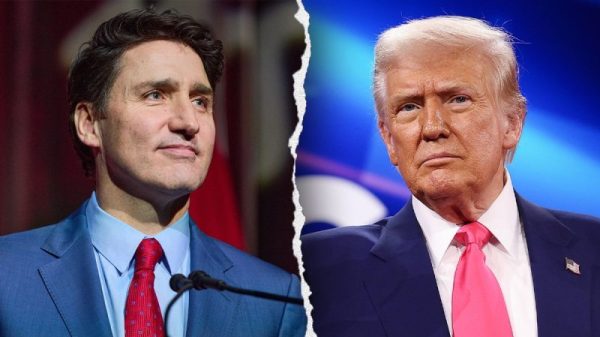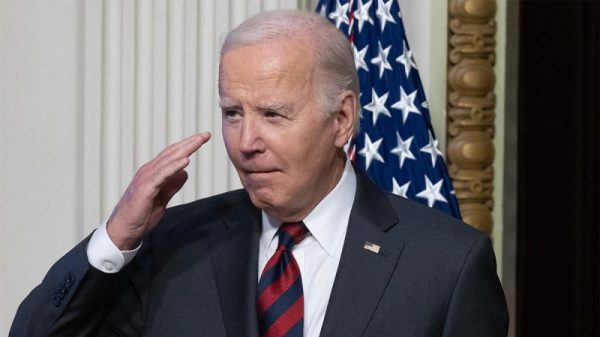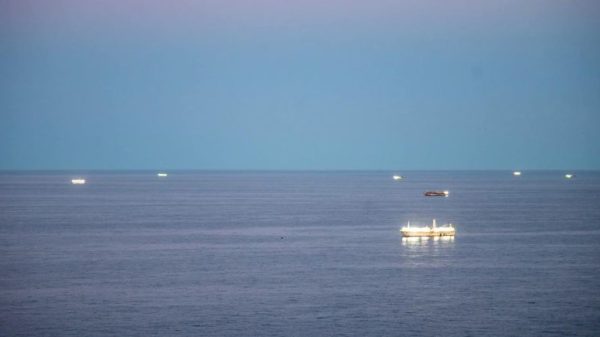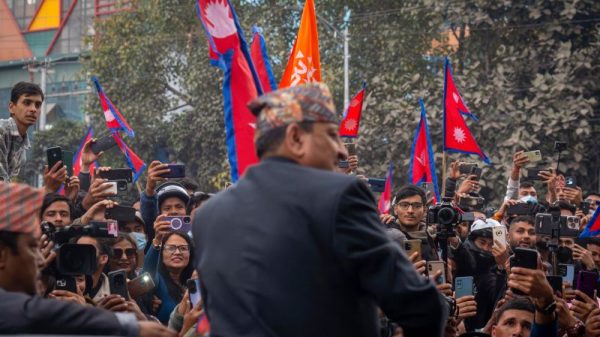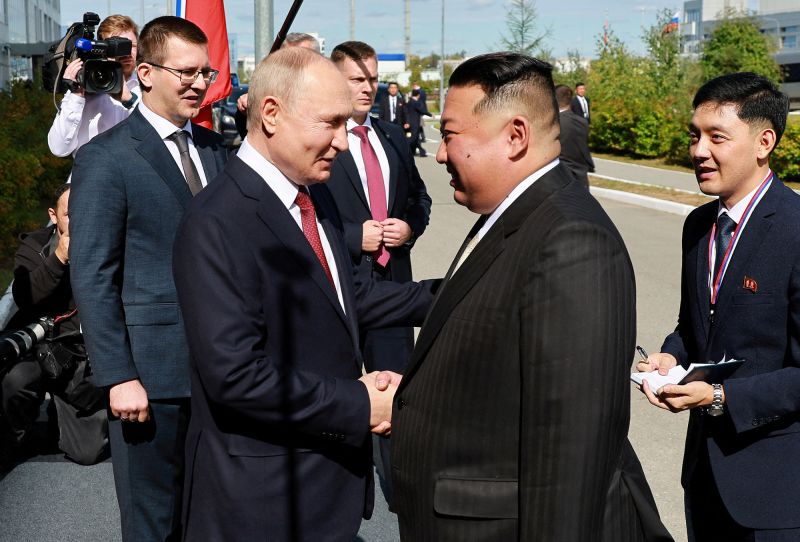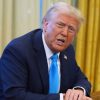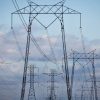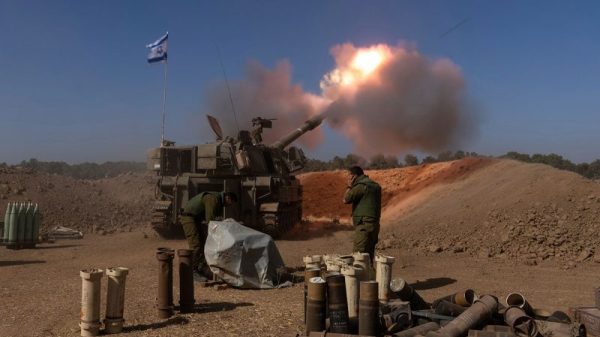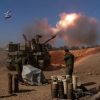Covering a meeting between Russian President Vladimir Putin and North Korean leader Kim Jong Un might best be described as a caption contest: The two held what the Kremlin called “very substantive” discussions on Wednesday, but beyond a few photo opportunities, we still have very little idea what went on behind closed doors.
Putin and Kim shook hands at the Vostochny Cosmodrome in Russia’s Amur Region; the North Korean leader got a lift in Putin’s Russian-made Aurus limousine; and Kim raised a toast to his counterpart, promising Russia would punish “evil forces” – dictator-speak that appeared to endorse Putin’s ghastly, grinding war of attrition against Ukraine.
But the two sides held no press conference and issued no communique. No deals were publicly announced. Figuring out the real takeaway from the summit in Russia’s Far East is going to be a challenge, even though the global stakes are quite high.
Back in July, Russian Defense Minister Sergei Shoigu went to Pyongyang with an apparent shopping list. After a year and a half of high-intensity combat in Ukraine, Russia’s ammunition stocks have been heavily depleted, and US officials warned that North Korea and Russia were mulling potential deals to replenish supplies for Moscow’s war on Ukraine. North Korea has a substantial arsenal on the Korean peninsula.
If this is what’s being hammered out in Russia – and we have seen no proof thus far that such a deal has been agreed – it would represent Pyongyang’s entry into a contest with the industrial bases of US and NATO members, which have been incrementally but steadily providing Ukraine with the ammunition it needs to slug it out with Russia. It’s a life-or-death race, with Putin apparently counting on support waning for Ukraine as the US enters a presidential election season.
And there’s potential of something in return for Pyongyang. Kim’s regime is heavily isolated: Multiple rounds of sanctions have targeted North Korea over its nuclear and ballistic missile programs. Even Russia has signed on to North Korean sanctions in the past.
But Putin appears to be extending a potential lifeline to Kim as his own government comes under sanction for the full-scale invasion of Ukraine, apparently dangling the carrot of access to Russian technology.
On a visit to the cosmodrome, a reporter asked Putin whether Russia would help North Korea “launch its own satellites and rockets” – to which Putin responded, “That’s exactly why we came here.”
“The leader of North Korea shows great interest in space, in rocketry, and they are trying to develop space. We’ll show our new objects,” Putin said.
Kim’s interest in shiny objects may sound somewhat innocuous. But the Kremlin leader’s phrasing calls to mind the old joke credited to the comedian Mort Sahl about Wernher von Braun, the German rocket scientist who pioneered Nazi Germany’s ballistic missile technology during World War II: “He aimed for the stars, but sometimes he hit England.”
Von Braun’s contribution to missile technology and to the US space program is well documented. His work paved the way for both space exploration as well as the development of the intercontinental ballistic missile, capable of lofting nuclear weapons across the globe.
So we are still dealing with a major unknown when it comes to a potential technology exchange between North Korea and Russia. The US believes Pyongyang has already been a player in the Ukraine war, providing the Russian mercenary group Wagner with arms.
Yevgeny Prigozhin, the founder of Wagner, dismissed the allegation as “nothing more than gossip and speculation” before he died when his plane fell out of the sky last month.
If Russia is handing over this launch technology to North Korea, then, the world may potentially be witnessing the wider global fallout of Europe’s largest land war since 1945. And the convergence of two pariah states may be playing out in unexpected and dangerous ways.



